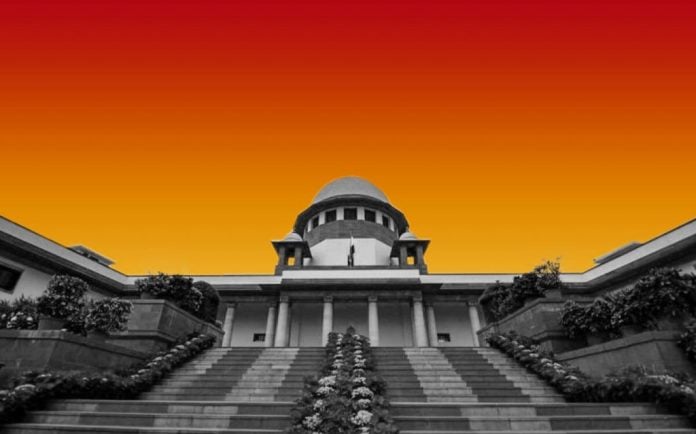The Supreme Court was on Wednesday apprised that former Jammu and Kashmir Governor Satya Pal Malik did not have any prior knowledge about the Union government’s decision till August 4, 2019, a day before it abrogated Article 370, stripping off Jammu and Kashmir of its special status.
Appearing for one of the petitioners challenging the abrogation of Article 370, Senior Advocate Nitya Ramakrishnan told the Constitution Bench that Malik did not have any inkling regarding the Centre government’s move.
Today was the 9th day of the Constitution Bench comprising Chief Justice of India D.Y. Chandrachud, Justice Sanjay Kishan Kaul, Justice Sanjiv Khanna, Justice B.R. Gavai and Justice Surya Kant hearing the petitions challenging the abrogation of Article 370.
Ramakrishnan referred to Malik’s interview given to Karan Thapar of ‘The Wire’ in April this year. Reading out a portion from Malik’s interview, the Senior Advocate said that Malik ‘did not know’ anything. He was ‘merely called’ by the Home Minister one day prior to the decision.
As per the Counsel, the Home Minister told the Governor, “Satyapal I’m sending a letter tomorrow morning please get it passed by a committee before 11 tomorrow and send it to me”.
The Senior Advocate asserted that Malik had no idea on the night of August 4 of what was coming.
She contended that as per the Constitutional Order 272, the “Government of J&K” was construed to mean the “Governor of J&K”. To abrogate the special status of Jammu and Kashmir under Article 370, the concurrence of the Government of J&K was needed, Ramakrishnan pointed out.
She said since there was no elected government in place on the relevant date (as the State Assembly was dissolved and it was placed under the Presidential Rule), the concurrence of the Governor was taken as the concurrence of the Government to issue the Presidential Order, which effectively abrogated Article 370.
The petitioners placed reliance on Malik’s interview to argue that there was no effective concurrence given by the Governor to abrogate Article 370. However, the Counsel, while citing the interview, admitted that the newspaper report was not an evidence by itself without corroboration.
She then argued that this was a televised interview given by the Governor who dissolved the public assembly. The whole world was aware of this. Ramakrishnan said that they cannot just ‘sit in an ivory tower’ and behave like it never happened.
The Apex Court called the interview a “post-facto statement,” to which Ramakrishnan responded that the top court of the country may consider it only at that level.


